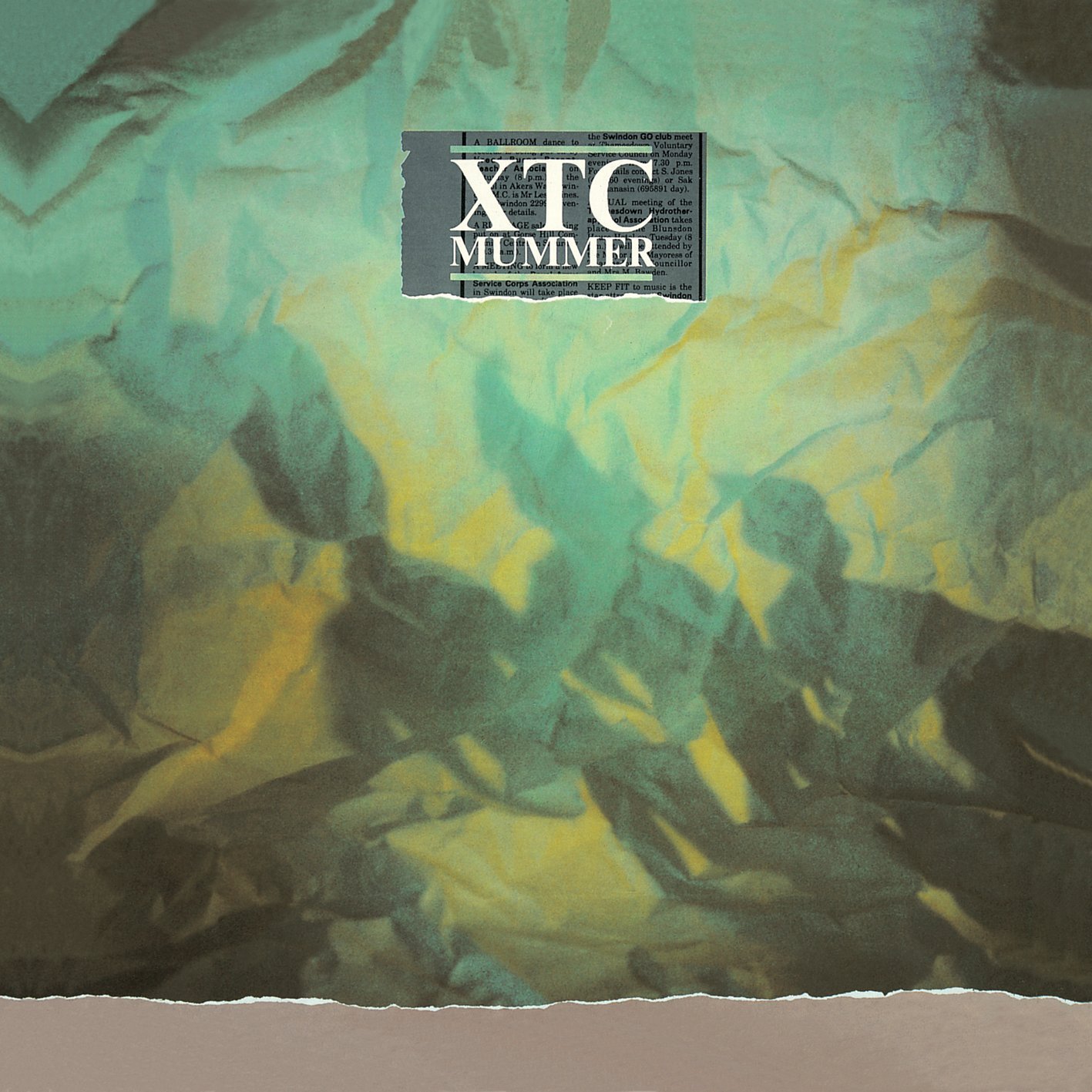1982s English Settlement had achieved a lot for XTC. Their first top ten album was also home to their first top ten single, and they seemed poised to be one of the key acts for the rest of the 80s. Then, with the worst possible timing, Andy Partridge’s long latent fear of live performance came to the fore then XTC were no longer a touring concern, which put a bit of a dent in their ability to promote new material. Record label Virgin just didn’t know how to market XTC outside of the tried and tested tour, album, tour cycle, and their first top ten album and single would end up being their only top ten hits, while drummer Terry Chambers started to consider his future with the band.
Released 18 months after English Settlement had hit the charts, Mummer was the first XTC album with the band as a studio only proposition. Exploring the loamy textures of its predecessor even further, it saw Partridge and fellow songwriter Colin Moulding put an increasing amount of distance between them and their angular post punk sound of albums like Drums and Wires and Black Sea, adopting a far more gentle sound on many tracks. Early in the sessions Chambers quit the band, so he only appeared on the first two album tracks, before being replaced for the rest of the album by Peter Phipps. From this moment XTC would never have a permanent drummer, and they would continue to transition further away from ‘rock’ to being one of the most uniquely English ‘pop’ bands of any era.
Three of the first four tracks on Mummer would be released as singles to promote the album, though they all struggled to make much of an impact despite their quality. “Wonderland” saw XTC blending their newfound love of pastoral sounds with some very contemporary synth pop sounds, while “Love on a Farmboy’s Wages” may be one of the most unique singles of the 80s, and one of their undisputed classics, while “Great Fire” is one of the few numbers on the album that harks back to their more riff heavy sounds of their past, but still manages to sound distinctly pastoral. All three of these singles deserved to be top ten hits, and the fact that they weren’t ensured that XTC would go into a commercial plummet for the next few years, as Mummer followed the top 5 album chart action of English Settlement by peaking at no. 51.
Along with its follow up, The Big Express, Mummer is an album that can be easy to overlook, as it’s neither part of their climb from critics darlings to commercial success, or their ridiculously hot streak that started from 1986’s Skylarking through to Partridge and Moulding’s last album together, 2000’s Wasp Star. That’s a real shame, as both of those albums have much to recommend them, as Partridge, Moulding and multi instrumentalist and arranger Dave Gregory set about exploring what kind of band they wanted XTC to be now that they were a purely studio based group. Freed from the necessity of having to play these songs live, XTC became much more ambitious in their approach to pop music, and on Mummer in particular there is an extra sheen of sophistication throughout. Sure, some may consider the polishing out of most of the band’s more rough edges resulted in Mummer being one of the least interesting XTC albums in terms of sound, but you cannot deny the quality of the songs that both Partridge and Moulding brought to the table, and that quality shines through the production sheen.
Given that Mummer bombed in comparison to its predecessor, some would assume it is disappointing album. Far from it. In fact Mummer is an album worthy of reinvestigation and reassessment, as it finds XTC making some crucial steps and in doing so recording some of their most charming material. The three singles aside, Mummer is chock full of great, if underrated, songs, with “Ladybird” being one of the Partridge’s most playful numbers, both “Me and the Wind” and “Human Alchemy” recall the experimental material from Black Sea, and “In Loving Memory of a Name” points the direction to the type of material that they would perfect in the second half of the decade. You see, despite Mummer’s disappointing commercial performance, XTC didn’t just become one of the key acts for the rest of the 80s, but far beyond that decade as well.














No Comment